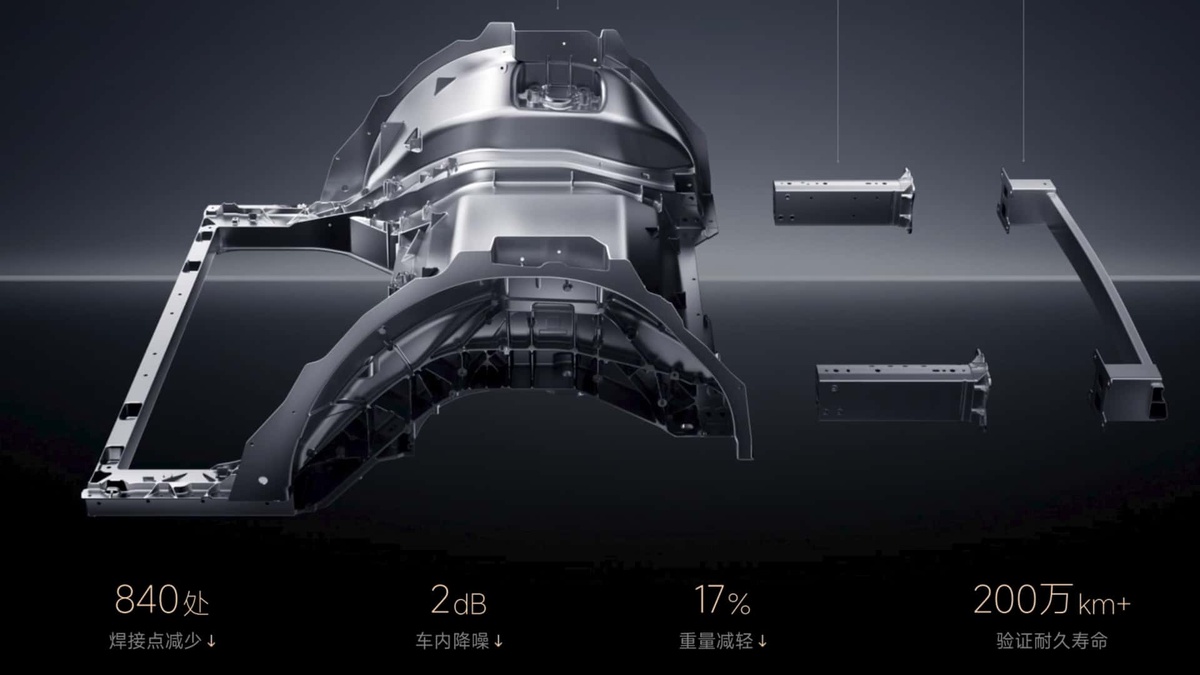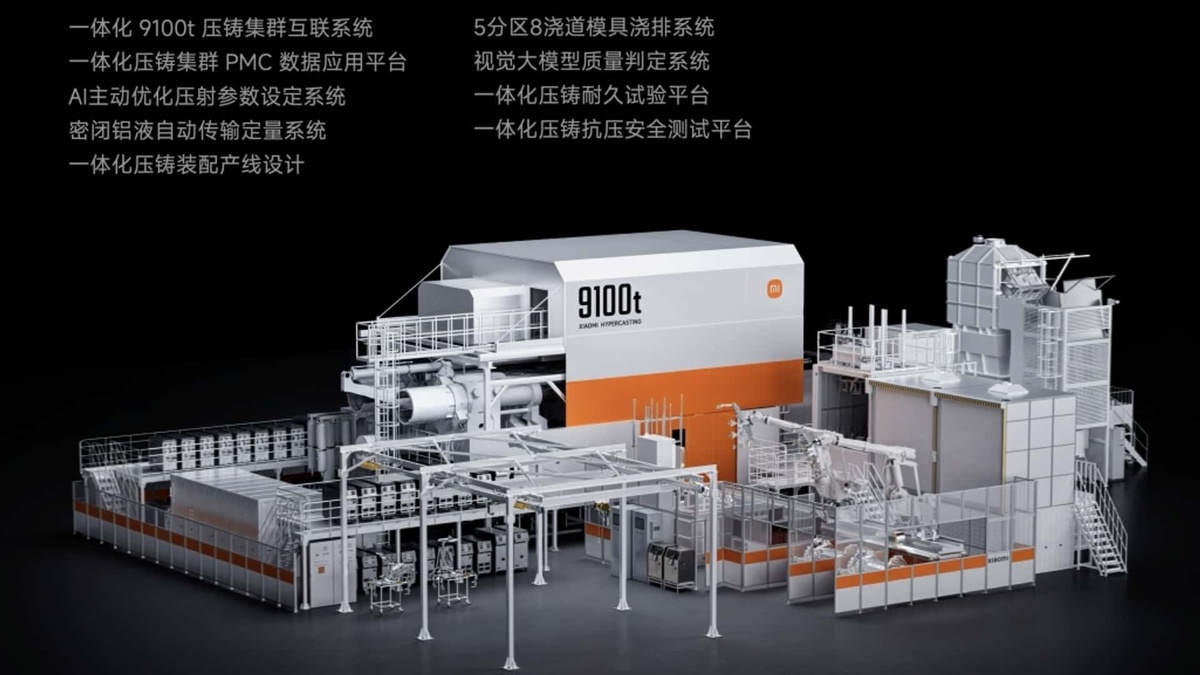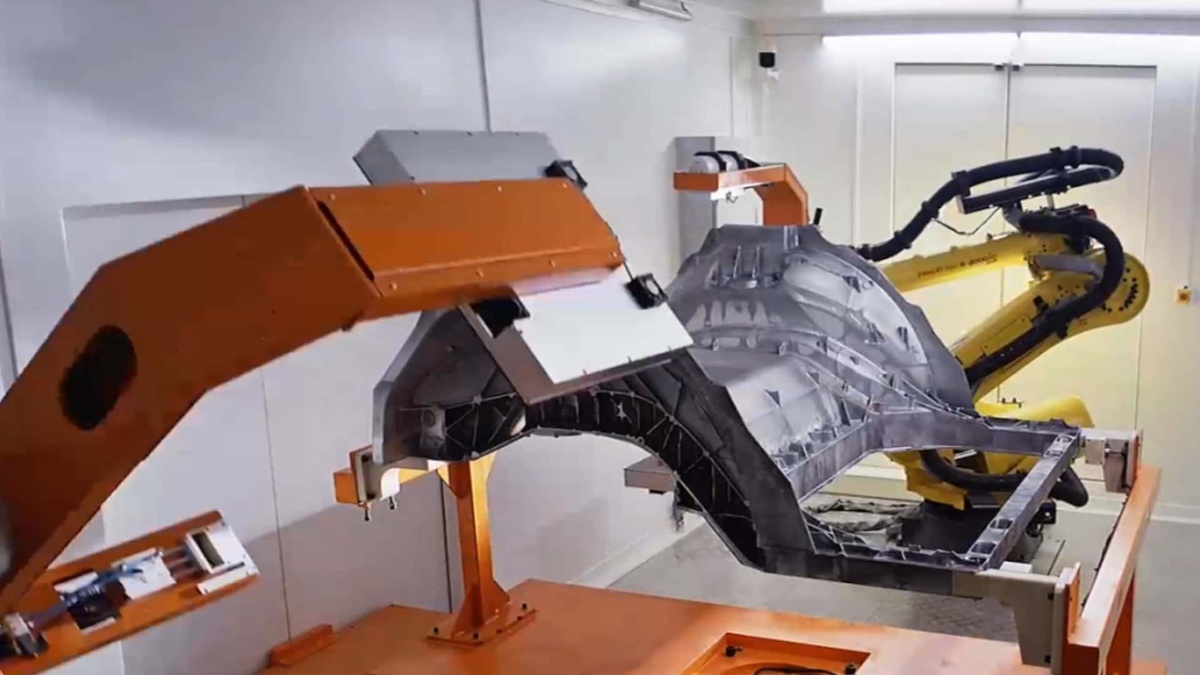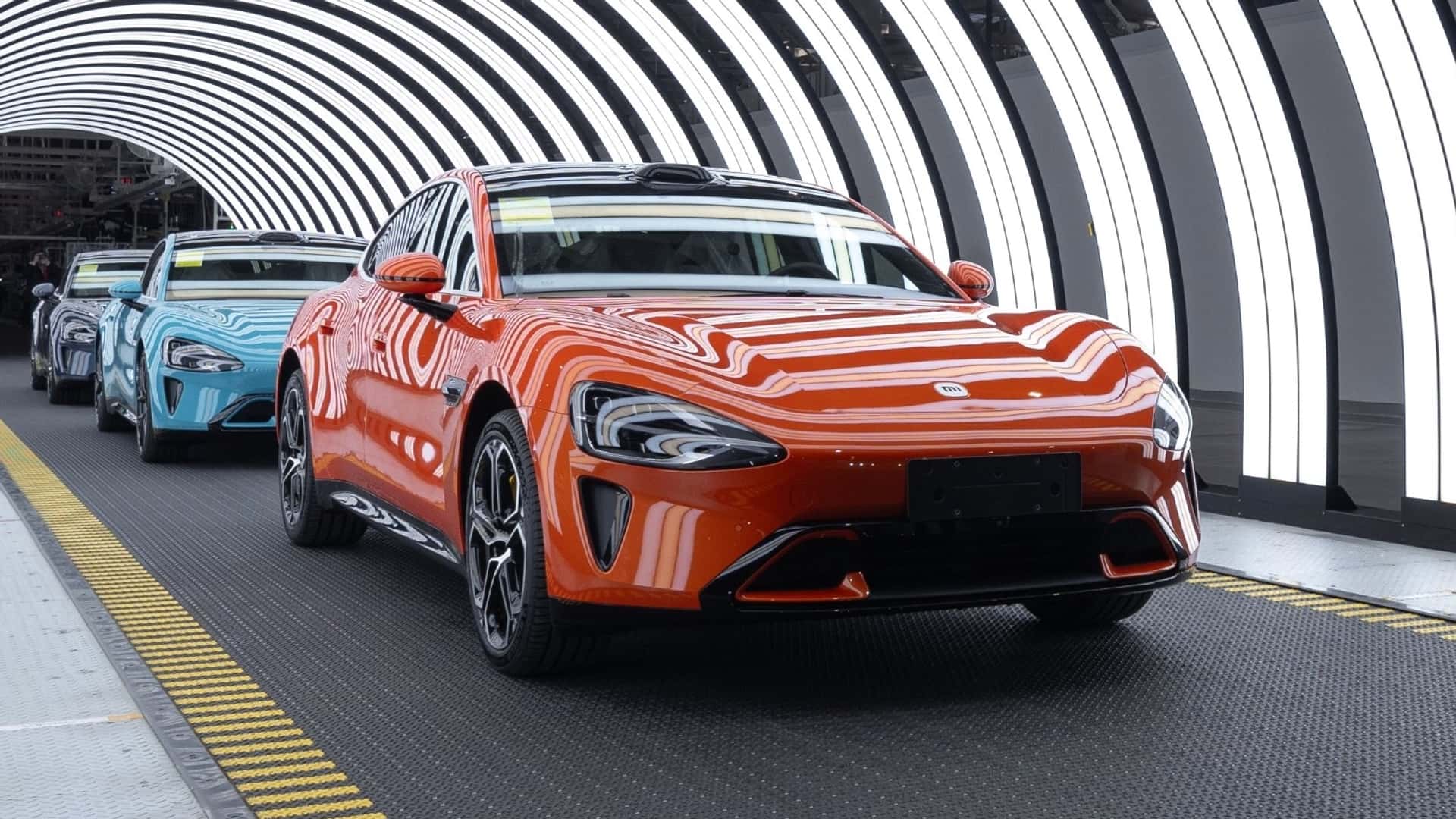Xiaomi goes beyond a single die casting machine. The company has developed a complete system with 60 devices and 433 processes, including the impressive Xiaomi Super Die Casting 9100T. This system incorporates 11 patent-protected advancements, such as an AI-powered injection parameter optimization system for unmatched precision.
Technology features:
- Production Efficiency: Xiaomi's self-developed die casting system enables the production of one SU7 every 76 seconds, ensuring a fast and efficient production line.
- Reduced weight and increased rigidity: The die-cast rear floor assembly replaces 72 individual parts, resulting in a 17% lighter component and a more rigid body. This lightness contributes to increasing the vehicle’s autonomy.
- Enhanced Durability: The integrated floor panel has a service life of more than 2 million kilometers, more than ten times that of a traditional panel.
- Noise reduction: New design reduces road noise by 2 dB
- Crash Protection: Xiaomi's three-stage anti-collision design minimizes repair costs in low- to medium-speed collisions. Only the crumple zone and anti-crash bar need to be replaced, not the entire floor assembly.
The factory that produces the SU7 is a good example of cutting-edge automation in the automotive sector. More than 700 robots work side by side with 181 autonomous mobile robots (AMRs) that navigate using Lidar technology, ensuring efficient movement of parts and minimizing human error. In addition, the X-Eye inspection system with 99.9% accuracy ensures more effective quality control.





Xiaomi SU7 production

